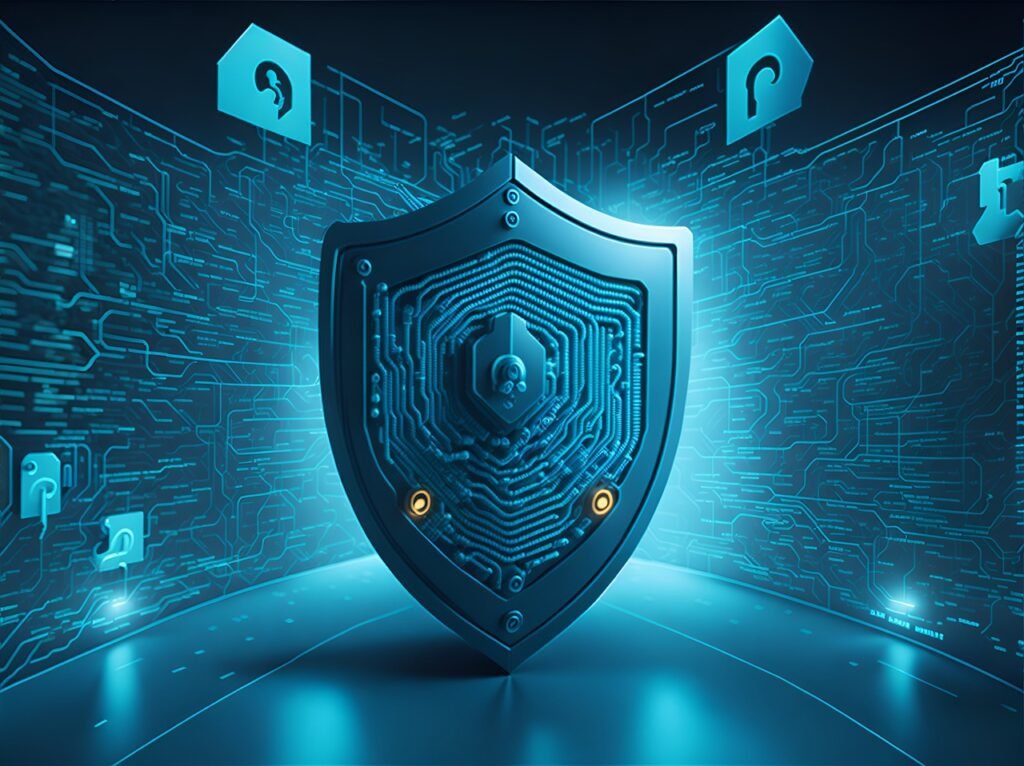In today’s digital age, computer security is more critical than ever. With the increasing reliance on technology for work, communication, and entertainment, ensuring that your computer and personal information are protected from cyber threats is essential. From malware attacks to phishing scams, the dangers are numerous and evolving. This article provides essential tips to enhance your computer security, helping you protect your digital life from potential threats.
Understanding the Importance of Computer Security
Computer security refers to the protection of computer systems and the data they hold from unauthorized access, damage, and theft. With the rise of sophisticated cyber-attacks, it’s vital to implement robust security measures. Without proper protection, your personal information, financial data, and even your identity can be at risk. Ensuring your computer is secure not only protects you but also helps prevent the spread of malware and viruses to others.
Top Tips for Enhancing Computer Security
Implementing the right strategies can significantly improve your computer security. Below are some critical tips to help safeguard your system:
1. Keep Your Software Updated
Regularly updating your operating system and software is one of the simplest yet most effective ways to protect your computer. Updates often include patches for security vulnerabilities that could be exploited by cybercriminals. Make sure to enable automatic updates for your operating system, antivirus software, and other essential programs to stay ahead of potential threats.
2. Use Strong, Unique Passwords
Using strong, unique passwords for each of your accounts is crucial for computer security. Avoid using easily guessable passwords like “123456” or “password.” Instead, create complex passwords that include a mix of letters, numbers, and special characters. Consider using a password manager to keep track of your passwords securely.
3. Enable Two-Factor Authentication
Two-factor authentication (2FA) adds an extra layer of security to your accounts by requiring a second form of verification in addition to your password. This could be a text message code, an email confirmation, or an authentication app. Enabling 2FA on your accounts makes it much harder for cybercriminals to gain access, even if they know your password.
4. Install and Update Antivirus Software
Antivirus software is your first line of defense against malware, viruses, and other malicious software. Ensure that you have reliable antivirus software installed and keep it updated regularly. Some of the best antivirus programs also offer real-time scanning and automatic updates, providing continuous protection.
5. Be Wary of Phishing Scams
Phishing scams are a common tactic used by cybercriminals to steal personal information by tricking you into clicking on malicious links or providing sensitive information. Always be cautious when receiving unsolicited emails or messages, especially those asking for personal information. Check the sender’s email address carefully and avoid clicking on suspicious links. Learn more about phishing prevention from trusted sources like the Federal Trade Commission.
Advanced Computer Security Measures
While basic security practices are essential, advanced measures can provide even greater protection for your computer:
1. Use a Virtual Private Network (VPN)
A Virtual Private Network (VPN) encrypts your internet connection, making it difficult for hackers to intercept your data. Using a VPN is especially important when using public Wi-Fi networks, which are often less secure. By masking your IP address and encrypting your data, a VPN adds an extra layer of privacy and security to your online activities.
2. Implement Firewall Protection
A firewall acts as a barrier between your computer and the internet, blocking unauthorized access while allowing legitimate traffic. Most operating systems come with a built-in firewall, but you can also use third-party firewalls for added protection. Regularly check your firewall settings to ensure it is active and properly configured.
3. Secure Your Home Network
Your home network can be a target for cybercriminals if not properly secured. Change the default login credentials for your router, use a strong Wi-Fi password, and consider enabling network encryption (WPA3 is the most secure option). Additionally, disable remote access to your router if you don’t need it, and regularly update your router’s firmware to protect against vulnerabilities.
Staying Informed and Vigilant
The landscape of cyber threats is constantly changing, making it essential to stay informed about the latest trends in computer security. Follow reputable cybersecurity blogs, sign up for security alerts, and regularly review your security practices to ensure you’re protected against emerging threats. Being vigilant and proactive is key to maintaining strong computer security.
Conclusion
Computer security is a critical aspect of protecting your digital life in an increasingly connected world. By implementing the tips discussed above—such as keeping your software updated, using strong passwords, and enabling two-factor authentication—you can significantly reduce the risk of cyber threats. Advanced measures like using a VPN, setting up a firewall, and securing your home network further enhance your protection. Remember, staying informed and vigilant is essential in maintaining robust computer security and ensuring your personal information remains safe.
Read more about: Tech
FAQs
What is computer security?
Computer security involves protecting computer systems and the data they hold from unauthorized access, damage, and theft.
Why is it important to update software regularly?
Software updates often include patches for security vulnerabilities, making it crucial to update regularly to protect against potential cyber threats.
How does two-factor authentication improve security?
Two-factor authentication adds an extra layer of security by requiring a second form of verification in addition to your password, making it harder for cybercriminals to access your accounts.
What are phishing scams and how can I avoid them?
Phishing scams are attempts to steal personal information by tricking you into clicking on malicious links or providing sensitive information. Avoid them by being cautious with unsolicited emails and checking the sender’s address carefully.
Should I use a VPN?
Yes, especially when using public Wi-Fi networks. A VPN encrypts your internet connection, providing extra privacy and security.
How can I secure my home network?
Change your router’s default login credentials, use a strong Wi-Fi password, enable network encryption, and regularly update your router’s firmware.

